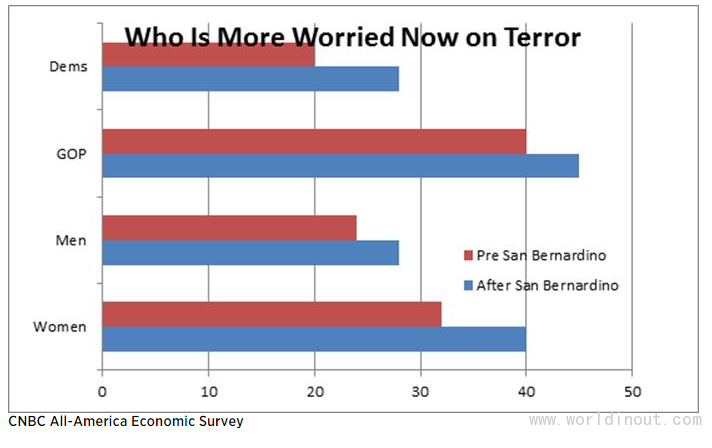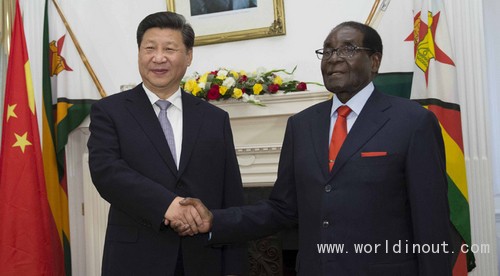The CNBC All-America Economic Survey found 34 percent of respondents "very worried" about a major terror attack in the United States, up from 26 percent before the San Bernardino massacre.
In a finding with significance for the presidential race, 28 percent of Democrats now say they are very worried, up 8 percentage points. Democrats are still not as concerned as Republicans, 45 percent of whom say they are very worried, a 5-point gain.
(A note on the survey: The pre-San Bernardino results are from an initial poll of 800 Americans conducted for CNBC by Hart Research and Public Opinion Strategies Nov. 29-Dec. 2. The poll has a margin of error of 3.5 percentage points. Following the attack, pollsters re-interviewed 347 of the original respondents Dec. 5-7. The new poll has a margin of error of 5.2 points, and provides a unique look at how attitudes changed just before and just after the attack.)

They could also revive the political debate about how far the government should go in battling terrorists.
By 52 percent to 33 percent, the highest level since 9/11, more Americans now fear that the government will not go far enough in monitoring the activities and communications of potential terrorists living in the country. In a separate NBC/Wall Street Journal poll in January, Americans were split 46 percent to 47 percent. Nearly half of Democrats are now afraid the government will not go far enough, a significant shift from just before the Dec. 2 attacks in San Bernardino.
Companies like Apple and Google have been under scrutiny in recent weeks because of their encryption technology that prevents others, including law enforcement officials, from reading a user's e-mail and text messages.
only 40 percent of CNBC's survey respondents were familiar with the issue. Among those most likely to say technology companies should sell this technology were millennials and men. Republicans and Democrats were about evenly split, perhaps a sign that the issue has not yet become political as the nation digests recent terror threats and attacks







